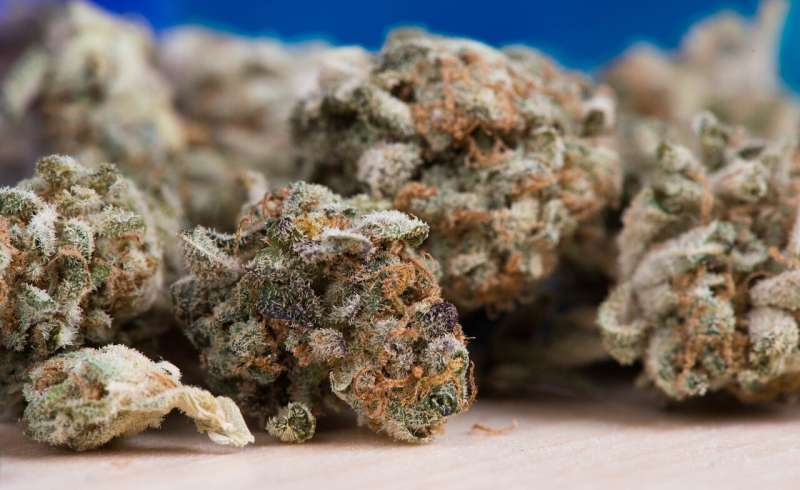Credit: CC0 Public Domain
A new study from the Prevention Research Center of the Pacific Institute for Research and Evaluation finds that recreational marijuana legalization may increase the risk of alcohol and marijuana co-use among adolescents.
The study examined the association between recreational marijuana legalization in California in November 2016 and alcohol and marijuana co-use among underage youth. The study is based on data from 7th, 9th, and 11th graders who participated in the statewide California Healthy Kids Survey from 2010–2011 to 2018–2019 school years.
Key findings include:
- Recreational marijuana legalization was associated with greater odds of past 30–day alcohol and marijuana co-use among adolescents after 2016-2017
- Legalization was more strongly associated with co-use among adolescents who reported past 30–day alcohol use and heavy drinking
- Legalization was inversely related to co-use among past 30–day marijuana users
- Among past 30–day co-users, there was a positive association between legalization and the frequency of marijuana use
Study co-author, Dr. Mallie J. Pachall, notes that their "study shows that marijuana legalization may increase the risk of alcohol and marijuana co-use among adolescents. To combat this negative public health effect, greater restrictions on the numbers of alcohol and marijuana retail outlets, hours of operation, advertising, as well as imposing higher taxes on alcohol and marijuana products may help reduce their availability to adolescents."
The study was published in the American Journal of Preventive Medicine.
More information: Mallie J. Paschall et al, Recreational Marijuana Legalization and Co-use With Alcohol Among Adolescents, American Journal of Preventive Medicine (2021). DOI: 10.1016/j.amepre.2021.06.003
Journal information: American Journal of Preventive Medicine
Provided by Pacific Institute for Research and Evaluation























